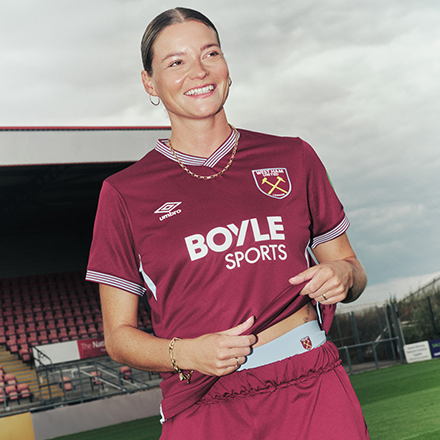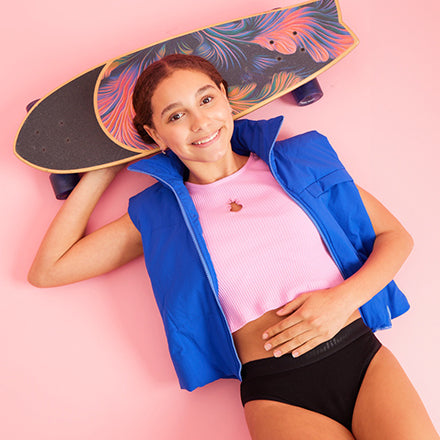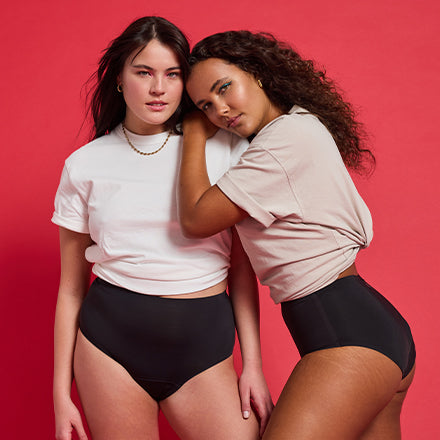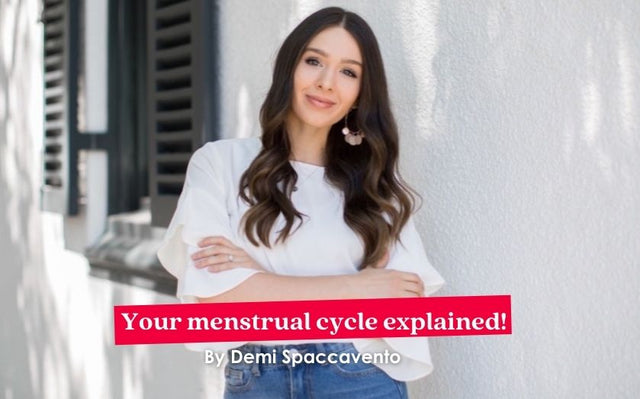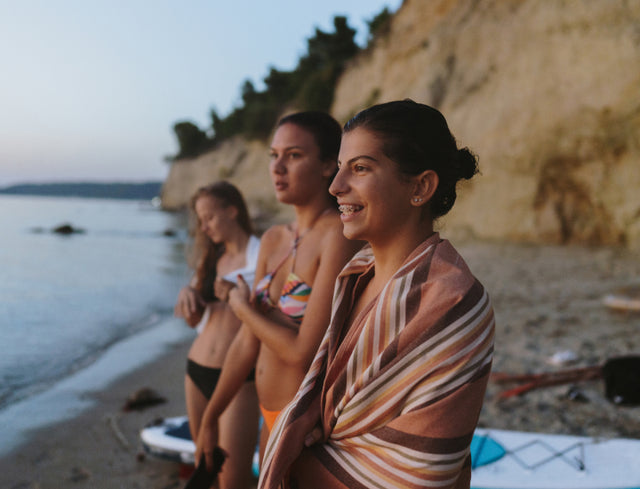When Evalani first visited Tonga to visit her extended family in 2014, she was struck by the lack of sanitation and toiletry products she encountered.
She wanted to do something about it. Having seen reusable period panties in Australia, it clicked; reusables could bridge both the access and disposal gaps faced by her community.
Through our Give a Pair program, we gave 300 pairs of reusable Modibodi period underwear to Evalani to bring back to Tonga. After navigating the aftermaths of Covid-19, cultural taboos, a volcanic eruption, and a tsunami that impacted 80% of Tonga – the pants finally arrived at their destination. We've sat down with Evalani to learn more about her work, what inspires her, and the advice she'd give to other young people who are driven to help their communities.
What inspired you to work in Tonga? Is there a specific story or conversation around period products that inspired you to take on this project?
I am half Tongan to my dad’s side and am very passionate about social justice especially within my own community. I first visited Tonga in 2014 and when I was staying in the village, I found there was a lack of access to sanitation and toiletry products for women as well as rubbish disposal. Over time, effective rubbish disposal systems have been implemented, however, I still believed there were better ways of dealing with menstrual disposal. When menstrual underwear became popular in Australia, I realised that this product would be extremely popular and would change a lot of things for girls and women there. I think that knowing there were such big differences in my lifestyle back home to the kids in my family over in Tonga was a big drive for me to begin this initiative.
What are some of the challenges around menstruation faced by people in Tonga?
When staying in the village, there was a constant lack of sanitation and more noticeably for a female, the lack of hygiene products readily available. Periods are hard enough, and it is even harder for the women and girls as it is less accessible. Periods also seem to have a stigma attached to them – in Tongan culture, there are many traditional and conservative values which in my opinion, has limited open discussion about menstruation. An example of this is that when I began my project, I was told by multiple people that my idea is ‘Taboo’ or inappropriate and even further, not involving themselves with me or my project purely because it is considered wrong to openly talk about. Thankfully though, the girls and women who I have supported have been more than grateful and I have been overwhelmed with support from many people.
Could you speak about how you implemented the program? The journey, victories, challenges, learnings?
My initial goal was to purchase as many pairs of reusable period underwear that $1200 could get me. I contacted several companies about supporting my cause or any deals they could provide for me, like matching the product that I have bought with a donation. Modibodi was one of the biggest contributors in my process, providing me with over 300 pairs to send over to Tonga. After collecting and receiving over 500 pairs of period underwear I was able to begin translating the instructions into Tongan and organising shipping. In January, Tonga experienced one of the largest volcanic eruptions recorded which was consequently followed by a large-scale tsunami – affecting up to 80% of Tonga. The Hunga Tonga–Hunga Ha'apai eruption and tsunami created many resource issues in Tonga. They were receiving humanitarian aid daily from a global scale which delayed my shipping by months. During this time, I organised shipping with “Sione’s Foundation”, a Newcastle based charity who works to provide better living standards and a better future for Tongan communities.
I worked closely with a family friend, Koniseti Luituai who is on the Tongan board of commerce. He assisted me along with my family, to arrange for the donated product to be packed into barrel for transportation to Tonga. The process took more than a year to implement, several challenges and many victories. In this time, I learnt that patience is so important in achieving my goals and that I can make a difference to people’s lives even from 3500km away.
What is some advice you'd want to pass on to young people who want to help their communities in a similar fashion?
If I was to give advice to a young person who wanted to help their communities in a similar way, I would tell them to remember who they are doing it for – knowing that you are helping people that you love and care about has been so motivating for me. I would also tell them that it can be a long and hard process but there are two major achievements in the end: the rewarding feeling of knowing that you have helped those who are less fortunate and that you have made a great achievement, and secondly knowing you have provided someone with something that could change their life.
Have you received any recognition for your work? If so, could you tell us more?
I have received an overwhelming amount of recognition for my work. I achieved the Edstart award firstly which began my project. The Edstart Achievement Award is a $1500 grant given to students who demonstrate commitment to particular areas in learning. The application process involves explaining achievements and future goals. There are six different categories young people can be nominated into and there is one or two finalists from each one. The money from the grant is dedicated towards each winner’s goals and a project they can use to further their passion or talent. I received the social justice grant which directly went towards this project.
I also recently was nominated for the 2022 NSW/ACT Young Achiever Awards and the NSW Pacific Awards where I received the Environmental Impact Award. I was the youngest person to receive an award at the 2022 ceremony. These awards aim to acknowledge the compassion and dedication that people in the Pacific community have put into categories, for example, Education or Sport.
What are the next steps for you? Do you think you'll keep working in this space?
I’m unsure of what my next steps are. I aim to focus on my studies for the next year, as I am transitioning into Year 12, however, I want to continue this work. My major project for Design and Technology is focussed on improving the living standards in Tonga during natural disasters and I am hoping that at some point, if possible, this project could become a reality in some form. In terms of this project, I aim to continue working on it and sending products over to the next few years to different villages and communities.

